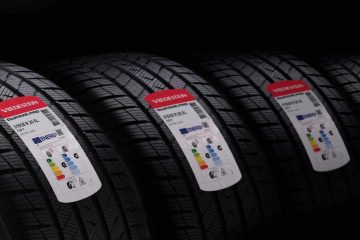The lubricants trade body, the Verification of Lubricant Specifications (VLS) is urging workshops not to be tempted to use poorer quality oils, amidst rising costs and decreasing margins.
According to the latest annual survey of vehicle repairers from The Motor Ombudsman, profitability was a major challenge for workshops in 2024. When asked about their main operational challenges during the year, 69% responded “Having to raise prices to stay profitable”. A total of 59% were also worried about “Higher energy bills and costs reducing business profitability”.
Looking ahead to 2025, 89% said rising operational costs, taxes and energy bills were the main challenges for their business going forward.
The research also found that 56% of repairers are expecting motorists to cut back on essential repairs in a bid to save money, with 48% saying similarly that they are forecasting vehicle owners to forgo ad hoc maintenance and routine maintenance, such as servicing, to cut running costs in the shorter term.
Commenting on the data, Harald Oosting, Chairman of VLS, said, “Economic pressures are hitting workshops and motorists hard, and the current UK economy has yet to show strong signs of growth. Workshops will be looking to save costs wherever they can, but we urge technicians to ensure they are using quality engine oils and the correct oil for every vehicle they service.”
Standards for lubricants
Modern vehicle engines require sophisticated lubricants using advanced chemistry. Even the slightest change in the formulation has the potential to cause engine damage over the long term.
When selecting the correct lubricants, technicians must look beyond the viscosity to market standards such as those of ACEA and OEM specifications and be careful with generic OEM claims such as ‘Suitable for Use’ without checking the necessary underpinning technical data that supports the claim.
Compared to standard formulations, cheaper products might contain reduced quality base oils, fewer additives or even untested additives. This can significantly affect the lubricant, resulting in poor or possibly even dangerous performance compared to genuine products.
With customers also potentially looking to save money on servicing, VLS is highlighting that workshops are the front line, and can play an important role in helping customers understand why they should not put off vital engine oil servicing. Ensuring they realise the benefits of approved lubricants is also key, and could lead to upselling opportunities.
Preventative measures
Postponing oil changes or ignoring the oil warning light could starve the engine of vital lubricant, risking increased wear and, at worst, leading to a catastrophic event like an engine failure and a much more expensive repair later on. Delaying a service or oil change or using the wrong oil may also invalidate a vehicle’s warranty.
Customers might think skipping the oil change and filter replacement will save money. But sticking to the recommended service interval is crucial to maintain and protect the vehicle, which is likely to be worth a lot more than the cost of the oil change.
VLS highlights that OEMs set oil change schedules for a reason. They know their engines, how they run on certain fuels and in specific regions, and they know how the engine oil, as well as other consumables, perform over time and mileage.
If the vehicle’s software is telling the driver that the car needs servicing, it should be addressed. Drivers with older vehicles need to know the recommended service and oil drain intervals and stick to them. Putting it off might seem like a short-term saving, but it could result in engine damage and high repair bills that could have been avoided.
“Technicians must also be aware that older vehicles are just as susceptible as newer models to problems if the wrong lubricants are used,” the trade body stated. “The right oil is just as important for a 20-year-old car as it is for a two-year-old vehicle. Workshops should always check and use the correct product, whatever the vehicle and its typical usage.”
To find out more about VLS’s work to uphold standards in the lubricants industry and protect end users, follow this link.



